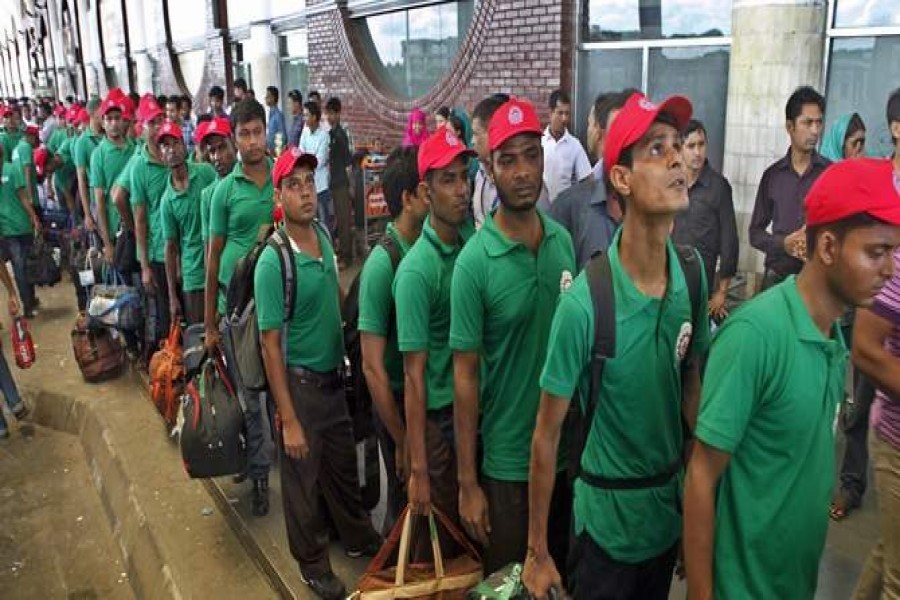The reported 'inability' of the Probashi Kallyan Bank (PKB) to locate potential clients for its rehabilitation loans meant for the returnee migrant workers is not anyway helping the government-owned institution to achieve its basic goals. Non-availability of a comprehensive database of migrant workers has been cited by the incumbent head of the PKB for their failure to disburse the rehabilitation loans among greater number of returnee migrant workers. The bank, established in 2011, could disburse only a paltry amount -- Tk.27 million -- of loans to only 161 returnee migrant workers. The failure of the bank, thus, is too obvious to draw criticism.
The necessity of a comprehensive database encompassing both outbound and inbound migrant workers can hardly be overlooked. There has been strong demand from various quarters for putting in place such a database with provision for updating it continuously. The government is also handicapped by the absence of such an important information tool. For instance, the Bureau of Manpower, Employment and Training (BMET) does have information about how many Bangladesh workers have gone abroad taking up employment since independence. But it does not keep track of the workers returning home at the end of their job contracts. This could have helped it to know about the actual number of workers staying outside the country at a given time.
However, the reason mentioned by the PKB for its failure to make disbursement of an adequate volume of loan among a sizeable number of returnee migrant workers turns out to be a weak and unacceptable one. Besides, the inability of the bank, in fact, defeats the purposes for which it has been established as a specialised financial institution. The core objectives of the PKB are to financially help both outbound and returnee migrant workers.
The needs of two types of migrant workers are different. Thousands of migrant workers return home empty-handed either for reasons of cheating by the recruiting agents or non-payment of wages and other benefits by their employers. The plight of these hapless people does not require any elaboration. Most of them usually finance their outbound journeys with funds borrowed either from relatives or money-lenders. Their empty-handed return spells disaster for them. In such a difficult situation, even small loans would mean a lot to them.
The bank has a mandate to offer loans to the returnee migrant workers to finance activities in fishery, poultry, agriculture and other small enterprises. If the PKB is really interested in offering loans to the returnee workers, absence of a database should not be an obstacle. The bank can invite applications for this particular type of people wherein the latter may be asked to present necessary evidence in support of their employment abroad.
The central bank recently enlisted the PKB as a scheduled bank as the Wage Earners' Welfare Board and the government jointly made available its paid-up capital worth Tk.4.0 billion. Naturally, the bank, though a specialised one, would enjoy greater freedom in the matters of lending and taking deposits, thus helping it acquire greater financial depth. But the relevant policymakers do need to ensure that the bank while attending its new-found role should not be oblivious of the purposes for which it has been created.


